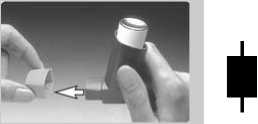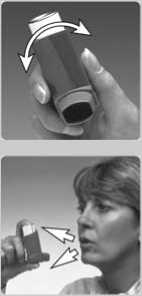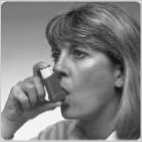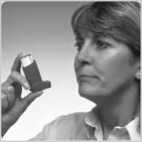Flixotide Evohaler 250 Micrograms
PACKAGE LEAFLET: INFORMATION FOR THE USER FLIXOTIDE 250 MICROGRAM CFC-FREE INHALER (fluticasone propionate)
This product is available in the above name and strength but will be referred to as Flixotide throughout the remainder of this leaflet.
Read all of this leaflet carefully before you start taking this medicine because it contains important information for you.
• Keep this leaflet. You may need to read it again.
• If you have any further questions, ask your doctor, nurse or pharmacist.
• This medicine has been prescribed for you only. Do not pass it on to others. It may harm them, even if their signs of illness are the same as yours.
• If you get any side effects, talk to your doctor, nurse or pharmacist. This includes any possible side effects not listed in this leaflet. See section 4.
What is in this leaflet:
1 What Flixotide is and what it is used for
2 What you need to know before you use Flixotide
3 How to use Flixotide
4 Possible side effects
5 How to store Flixotide
6 Contents of the pack and other information
1. What Flixotide is and what it is used for
Fluticasone propionate belongs to a group of medicines called corticosteroids (often just called steroids). A very small dose of steroid is needed when it is inhaled. This is because it is inhaled straight to your lungs.
Flixotide works by reducing swelling and irritation in the lungs. It has what is called an 'anti-inflammatory action'.
• Some people find it difficult to release a puff of medicine just after they start to breathe in. The Volumatic spacer device helps to overcome this problem. Your doctor, nurse or pharmacist will be able to advise you about this.
• It takes a few days for this medicine to work and it is very important that you use it regularly.
Adults and Children over 16 years of age
Mild asthma
• The usual starting dose is 100 micrograms twice a day. Moderate to severe asthma
• The usual starting dose is 250 to 500 micrograms twice a day.
• The most taken should be 1000 micrograms twice a day.
Flixotide Evohaler 125 and 250 micrograms are not recommended for children below 16 years of age.
It is recommended that children being treated with steroids, including Flixotide Evohaler have their height checked regularly by their doctor.
Your doctor may give you a Flixotide 250 microgram Evohaler if your dose is increased.
If you are using high doses of an inhaled steroid for a long time you may sometimes need extra steroids for example during stressful circumstances such as a road traffic accident or before an operation. Your doctor may decide to give you extra steroid medicines during this time.
Patients who have been on high doses of steroids, including Flixotide Evohaler for a long time, must not stop taking their medicine suddenly without talking to their doctor. Suddenly stopping treatment can make you feel unwell and may cause symptoms such as vomiting, drowsiness, nausea, headache, tiredness, loss of appetite, low blood sugar level and fitting.

Flixotide helps to prevent asthma attacks in people who need regular treatment. This is why it is sometimes called a 'preventer'. It needs to be used regularly, every day.
Flixotide will not help treat sudden asthma attacks where you feel breathless.
• A different medicine is used for treating sudden attacks (called a 'reliever').
• If you have more than one medicine, be careful not to confuse them.
Instructions for use
Your doctor, nurse or pharmacist should show you how to use your inhaler. They should check how you use it from time to time. Not using the Flixotide Evohaler properly or as prescribed, may mean that the medicine will not help your asthma as it should. The medicine is contained in a pressurised canister in a plastic casing with a mouthpiece.
2. What you need to know before you use Flixotide
Do not use:
• if you are allergic to fluticasone propionate or any of the other ingredients of this medicine (listed in section 6).
Warnings and precautions
Talk to your doctor, nurse or pharmacist before taking if:
• you have ever been treated for tuberculosis (TB).
• you are using Flixotide at the same time as taking steroid tablets. Also if you have just finished taking steroid tablets. In both cases, you should carry a steroid warning card until your doctor tells you not to carry one.
If you are not sure if any of the above applies to you, talk to your doctor, nurse or pharmacist before using Flixotide.
Other medicines and Flixotide
T ell your doctor, nurse or pharmacist if you are taking, have recently taken or might take any other medicines, including medicines obtained without a prescription. This includes herbal medicines. Remember to take this medicine with you if you have to go into hospital.
In particular tell your doctor or pharmacist if you are taking any of the following:
• a type of antiviral medicine known as a 'protease inhibitor' (such as ritonavir)
• medicines used to treat fungal infections (such as ketoconazole).
If you are not sure if any of the above applies to you, talk to your doctor or pharmacist before using Flixotide
Using Flixotide with food and drink
You can use Flixotide at any time of day, with or without food.
Pregnancy and breast-feeding
If you are pregnant or breast-feeding, think you may be pregnant or are planning to have a baby, ask your doctor for advice before taking this medicine.
Driving and using machines
Flixotide is not likely to affect you being able to drive or use any tools or machines.
Flixotide comes in three different strengths. Your doctor will have decided which strength you need. Always use Flixotide exactly as your doctor has told you. Check with your doctor, nurse or pharmacist if you are not sure.
Using this medicine
The medicine in Flixotide should be inhaled using a special kind of inhaler called an Evohaler.
• Make sure that you have one and can use it properly.
• Instructions on how to use the inhaler are given as a step-bystep guide.
• If you are over 16 years of age and are on higher doses (above 1,000 micrograms daily) you should take your medicine via the Volumatic® large-volume spacer device to help reduce side-effects in the mouth and throat. Your doctor, nurse or pharmacist will be able to advise you about this.
Testing your inhaler
1 When using the inhaler for the first time, test that it is working. Remove the mouthpiece cover by gently squeezing the sides with your thumb and forefinger and pull apart.
2 To make sure that it works, shake it well, point the mouthpiece away from you and press the canister to release a puff into the air. If you have not used the inhaler for a week or more, release two puffs of medicine into the air.
Using your inhaler
It is important to start to breathe as slowly as possible just before
using your inhaler.
1 Stand or sit upright when using your inhaler.

2 Remove the mouthpiece cover (as shown in the first picture). Check inside and outside to make sure that the mouthpiece is clean and free of objects.
3 Shake the inhaler 4 or 5 times to ensure that any loose objects are removed and that the contents of the inhaler are evenly mixed.
4 Hold the inhaler upright with your thumb on the base, below the mouthpiece. Breathe out as far as is comfortable. Do not breathe in again yet.
5 Place the mouthpiece in your mouth between your teeth. Close your lips around it. Do not bite.
6 Breathe in through your mouth. Just after starting to breathe in, press down on the top of the canister to release a puff of medicine. Do this while still breathing in steadily and deeply.
7 Hold your breath, take the inhaler from your mouth and your finger from the top of the inhaler. Continue holding your breath for a few seconds, or as long as is comfortable.
8 If your doctor has told you to take two puffs, wait about half a minute before you take another puff by repeating steps 3 to 7.
9 Afterwards, rinse your mouth with water and spit it out.




10 After use always replace the mouthpiece cover straight away to keep out dust. Replace the cover by firmly pushing and clicking into position.
w